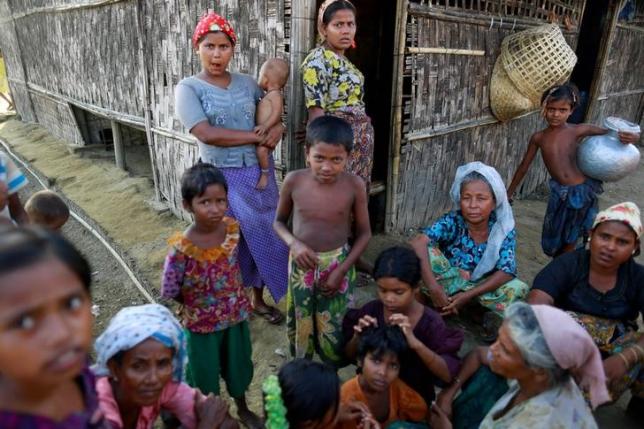
Even as Rohingya refugees continue to suffer, experts believe that only a strong stand towards Myanmar by regional and global powers can bring relief and help them to return to their homes safely.
Tareque Shamsur Rahman, who teaches international relations at Jahangirnagar University, said only a hard stance of Bangladesh can bring an end to the crisis.
Rohingya faced the latest military crackdown on Aug. 25, 2017 – which is called the textbook example of genocide by the UN – forcing around 860,000 people to flee Bangladesh.
Speaking to Anadolu Agency, Rahman said while the world community offers sympathies to Bangladesh, the country has failed to turn the Rohingya crisis into a global issue.
“Until we manage global powers and economies to take decisions like imposing economic sanctions on Myanmar, the Rohingya crisis would not be solved. And to this end to impose embargo, we need direct support from China and the US, also from India, which is a non-permanent member of the powerful UN Security Council,” he added.
Rahman lamented that China, which could have played a big role to ameliorate the sufferings of Rohingya is not interested.
“China is a friendly country for Bangladesh. It has a big investment in the country, yet it is not playing any role to repatriate Rohingya Muslims to Myanmar,“ he added.
Another regional power, India has been stating that it supports Bangladesh on the Rohingya issue and the return of refugees.
“But most of these assurances remain on the piece of paper,” said the professor.
Prime Minister Sheikh Hasina during her meetings with global leaders including those from India and China has been raising the issue and insisting on peaceful Rohingya repatriation.
Sources said that the issue of Rohingya repatriation was discussed with the Indian Foreign Secretary Harsh Vardhan Shringla, who was in Dhaka recently amid the Covid-19 outbreak.
Bangladesh Foreign Secretary Masud Bin Momen, while greeting India for becoming a non-permanent member of the UNSC, expected New Delhi to play a meaningful role for a lasting solution to the Rohingya crisis, including their early repatriation to Myanmar.
Rahman, however, said there was a case to make global powers to understand that even limited economic sanctions will force Myanmar to settle the issue of Rohingya.
Rahman apprehended that with hundreds of children born every day in Rohingya refugee camps, they can now claim Bangladeshi citizenship and stay in the country forever.
“Furthermore, a national election is going to be held in Myanmar and as long as the military remains in power in Myanmar it may not be possible to see the Rohingya crisis being resolved,” he added.
Security risk
Rezaul Karim Chowdhury, who heads a network of 50 local voluntary groups working in Cox’s Bazar – a town on the southeast coast of Bangladesh – told Anadolu Agency that the town which was the biggest tourist spot of Bangladesh has turned into a centre of crimes, including a hub for drug and prostitution racket. The town hosts the biggest Rohingya refugee camps.
“The camps are becoming a security threat not only for Bangladesh but for the region which must affect India and China too,” he pointed out.
He called for launching robust diplomatic efforts, especially with India and China to convince Myanmar. Both these countries have economic and diplomatic ties with Myanmar and Bangladesh.
Chowdhury also suggested that religious leaders of minority groups like Buddhists and Hindus in Bangladesh should be roped into outreach to India and China to convey real issues that Dhaka is facing.
Furthermore, due to opposition from UN agencies, Bangladesh could not relocate some of the about one million refugees taking shelter in Teknaf area of Cox’s Bazar to a remote Bhasan Char island to ease the pressure on the densely populated Rohingya refugee camps.

1730360426-0/Menendez-Brothers-(2)1730360426-0-165x106.webp)
1732534556-0/taylor-(14)1732534556-0-165x106.webp)
1725872216-0/Tribune-Pic-(3)1725872216-0-165x106.webp)
1732532771-0/BeFunky-collage-(89)1732532771-0-165x106.webp)
1732518687-0/Copy-of-Untitled-(78)1732518687-0-270x192.webp)











COMMENTS
Comments are moderated and generally will be posted if they are on-topic and not abusive.
For more information, please see our Comments FAQ